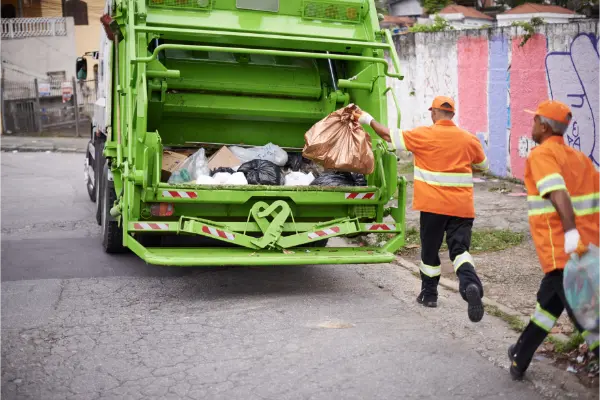The Future of Waste Management Services: Technology and Trends
Waste management services have come a long way in recent years, thanks to advancements in technology and changing consumer behaviors. As a leading provider of cleaning services, Crystal Facilities Management is at the forefront of these changes, constantly exploring new ways to improve waste management and sustainability practices. In this article, we’ll explore the future of waste management services, including the role of technology and emerging trends.
Utilizing IoT for Smart Waste Management
The Internet of Things (IoT) has revolutionized many industries, and waste management is no exception. IoT devices can be used to track waste generation, monitor bins and containers, and optimize collection routes. At Crystal Facilities Management, we have started implementing IoT sensors in our clients’ waste management systems to provide real-time data on fill levels and compaction rates, allowing for more efficient and timely waste collection.
Advancements in Recycling Technologies
Recycling is a critical component of waste management, and advancements in recycling technologies are making it easier and more efficient to recycle a wider range of materials. From automated sorting technologies to advanced recycling processes, these innovations are enabling us to recover more value from waste streams and divert a greater percentage of materials from landfills. Crystal Facilities Management is committed to staying abreast of these developments and implementing them in our clients’ waste management programs.
The Rise of Circular Economy Principles
The traditional linear economy, in which materials are used and then disposed of, is being replaced by a circular economy model, which aims to keep materials in use for as long as possible. This shift requires changes in the way products are designed, manufactured, and used, as well as improvements in waste management and recycling infrastructure. Crystal Facilities Management is embracing the principles of the circular economy and working with our clients to develop strategies that minimize waste generation and maximize resource recovery.
Eco-Friendly Waste Collection Vehicles
The vehicles used for waste collection are also evolving, with a greater emphasis on fuel efficiency and reduced emissions. Electric and hybrid waste collection vehicles are becoming more prevalent, offering a cleaner and quieter alternative to traditional diesel trucks. Crystal Facilities Management is exploring the use of eco-friendly waste collection vehicles in our operations, with the goal of reducing our environmental impact and contributing to a more sustainable future.
Data Analytics for Waste Optimization
Data analytics is playing an increasingly important role in waste management, helping to identify patterns and trends in waste generation and collection. By analyzing this data, we can optimize collection schedules, adjust bin sizes, and target areas for waste reduction initiatives. Crystal Facilities Management is harnessing the power of data analytics to provide our clients with actionable insights that drive improvements in waste management efficiency and sustainability.
The Shift Towards Zero Waste
One of the most significant trends in waste management is the shift towards zero waste, an ambitious goal that aims to eliminate waste sent to landfills and incinerators. This movement involves a combination of waste reduction, recycling, composting, and reusing materials, as well as a focus on sustainable product design and packaging. Crystal Facilities Management is committed to supporting our clients in their efforts to achieve zero waste, providing expert guidance and innovative solutions to help them meet their waste diversion goals.
In Conclusion
The future of waste management services is filled with promise, with technology and shifting consumer attitudes driving positive change. As a leading provider of cleaning services, Crystal Facilities Management is dedicated to embracing these advancements and working with our clients to create more sustainable waste management practices. By harnessing the power of technology, embracing circular economy principles, and promoting zero waste initiatives, we are paving the way towards a cleaner and more sustainable future for waste management services.














